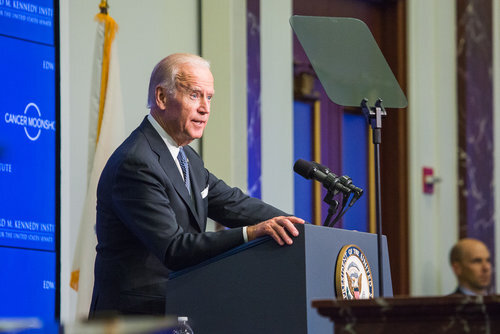The 9/11 Terrorist Attacks: Two Decades Later
Four planes, 90 minutes, 3000 lives lost. 11 September 2001 was a day that shook both the U.S., and the whole world. The hijacking and weaponisation of four commercial airplanes by Al-Qaeda terrorists was unprecedented in its horrific efficiency and resulting destruction and loss. It marked a turning point in security, counterterrorism and U.S. foreign policy. Over 20 years later, the legacy of 9/11 continues to penetrate the world.
President George W. Bush was quick to respond. Less than two weeks following the attacks, Bush announced the ‘War on Terror’. The term was used to describe the new counterterrorism measures introduced as a response to the attacks and the military response the U.S. government undertook. Firstly, this included the U.S. led invasion of Afghanistan in 2001, after the Taliban, who were in control of Afghanistan’s government, refused to hand over al-Qaeda leaders residing there. The war in Afghanistan only came to an end this August when the final U.S. troops left the country. It marked the end to 20 years of bloodshed- America’s longest ever war. Secondly, the invasion of Iraq in 2003 stemmed from fears that terrorists could gain possession of weapons of mass destruction (WMD) and aimed to end the dictatorship of Saddam Hussein. However, there was no strong evidence of WMD actually existing in Iraq, and certainly not enough to justify or initiate an invasion. Nevertheless, Bush commenced the invasion in March 2003, and although Saddam Hussein was captured and killed, there was no evidence of WMD found in Iraq. It is questionable whether the launch of the war in Iraq would have taken place if it was not for 9/11.
Both of the wars in Iraq and Afghanistan stemmed from the September 2001 attacks, and they led to extreme devastation, destruction and displacement. Over three quarter of a million lives were lost in conflicts resulting from 9/11. They were also very costly, and the U.S. government spent over $2.2 trillion (£1.6 trillion) on upfront costs alone. This massive sum has also caused divided domestic options on priorities and effectiveness of the ‘War on Terror’, especially during periods such as the 2007-2009 global financial crisis.
As well as loss, sacrifice and destruction directly resulting from these conflicts, the Human Rights Watch has reported widespread human rights abuses in the past two decades, carried out both by several U.S. administrations and other foreign governments. Such violations include unlawful airstrikes, intrusive surveillance, torture, indefinite and secret detention, discrimination against Muslims, and non-specific counterterrorism laws. Hence, although the U.S. and the West were the initial victim of 9/11, in some regards they have arguably also become the villain.
Additionally, on top of marking a turning point in U.S. foreign policy and state counterterrorism, 9/11 also greatly affected citizens both in the U.S and beyond on an individual level. The surprise nature of the attacks shook individuals and created a sense of vulnerability and fear. If such surprise attacks could happen in such a significant place, surely, they could happen elsewhere? As a result of feelings of insecurity, there was a great reluctance by the public to travel by air following 9/11. The U.S. airline industry lost $8 billion in 2001, and it took over five years to be profitable again. Although global air passenger traffic did eventually recover after two years following the attacks there were several permanent worldwide changes in the industry, particularly regarding security measures at airports throughout the world. Before 9/11, airport security was dealt with by private contractors and was extremely lax. It was possible to arrive minutes before your flight, and experience very minimal security checks. The 9/11 hijackers were able to bring boxcutters and knives onto their flights with no issues. Following the attacks, Bush enacted The Aviation and Transportation Security Act. As part of the act, the Transportation Security Administration was created, which made federal employees in charge of passenger screening. It also required all baggage to be X-ray screened, more armed marshals on flights, and the reinforcement of cockpit doors.
However, such additional measures only helped increase security and reduce threats to a limited extent. Additional airport security measures are almost always created in hindsight and are reactionary in nature. The use of boxcutters by terrorists resulted in their ban; an attempt to use a bomb in a shoe meant all shoes had to go through X-ray machines; a bomb put in underwear led to full body scanners. Overall, such measures are ineffective at preventing terrorism, as attackers just need to create new tactics and methods to overcome them. They create a “security theatre”. Coined by security expert Bruce Schneier, “security theatre” refers to the creation of a feeling of security for people with little real efficacy. The events of 9/11 saw new methods of terrorism, and hence security threats that were previously unknown. Such unknown threats are always out there. Airport security just creates a feeling of security, even if that is not the case.
Furthermore, on an individual level, 9/11 marked the beginning an era of increased Islamophobia, particularly in the U.S.. In the immediate aftermath, mosques were burnt, Muslims received death threats, and general harassment increased significantly. 20 years later, Islamophobia still exists throughout the U.S., and affects the daily lives of millions of people.
Overall, the infamous events of 11 September 2001 changed the world. However, extent of the loss, devastation and destruction from the terrorist attacks that morning was only the peak of an iceberg. 9/11 changed the world in an array of ways, and the U.S. as a victim and later, protector, is only part of the story. Over two decades since the attacks, the effects still resonate across the world and shape many lives. The continuously evolving ‘War on Terror’ means changes are likely to continue, but hopefully a world two decades from now will be safer and more secure for everyone.
Image Courtesy of National Park Service via Wikimedia Commons, © 2011, some rights reserved.



